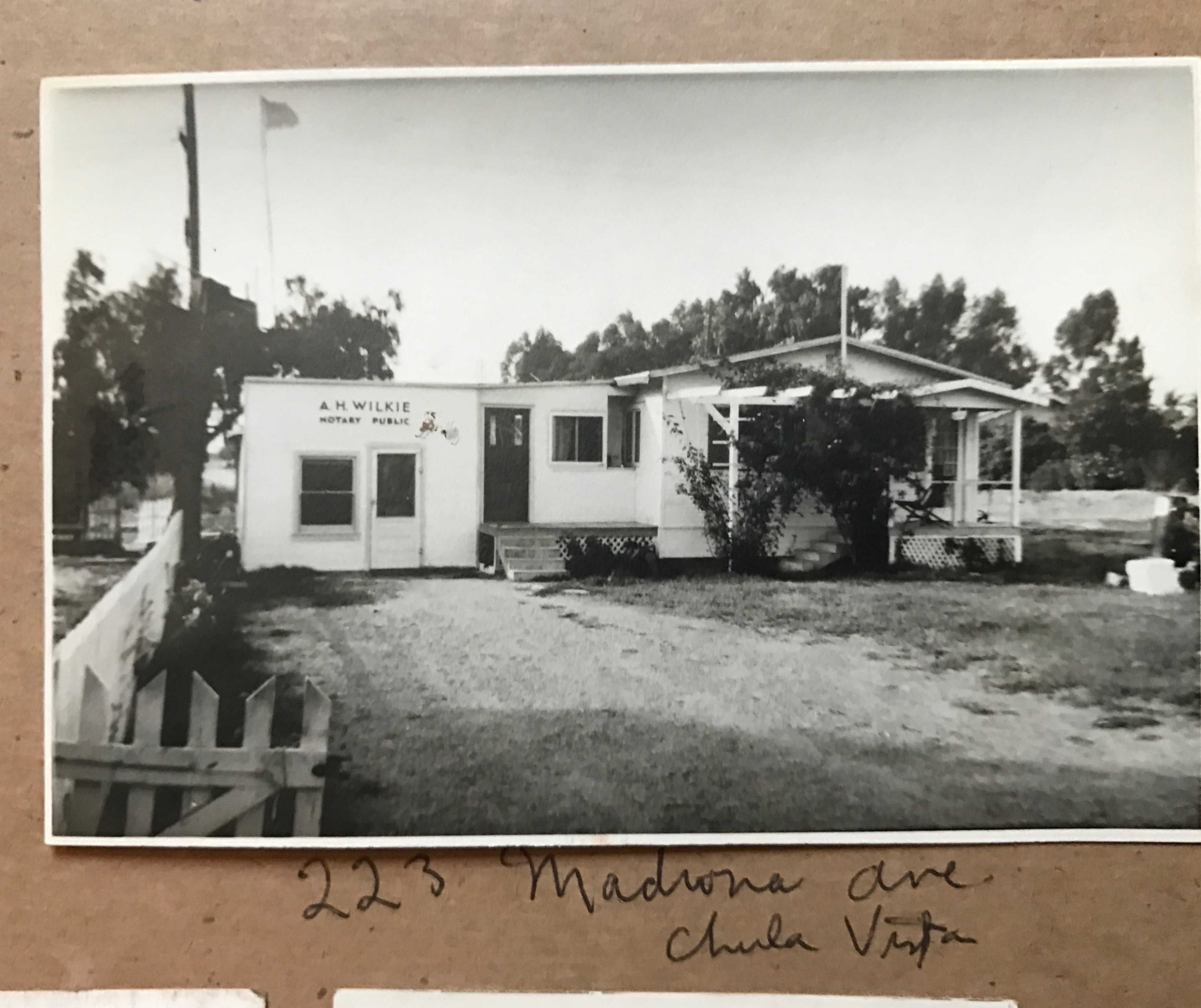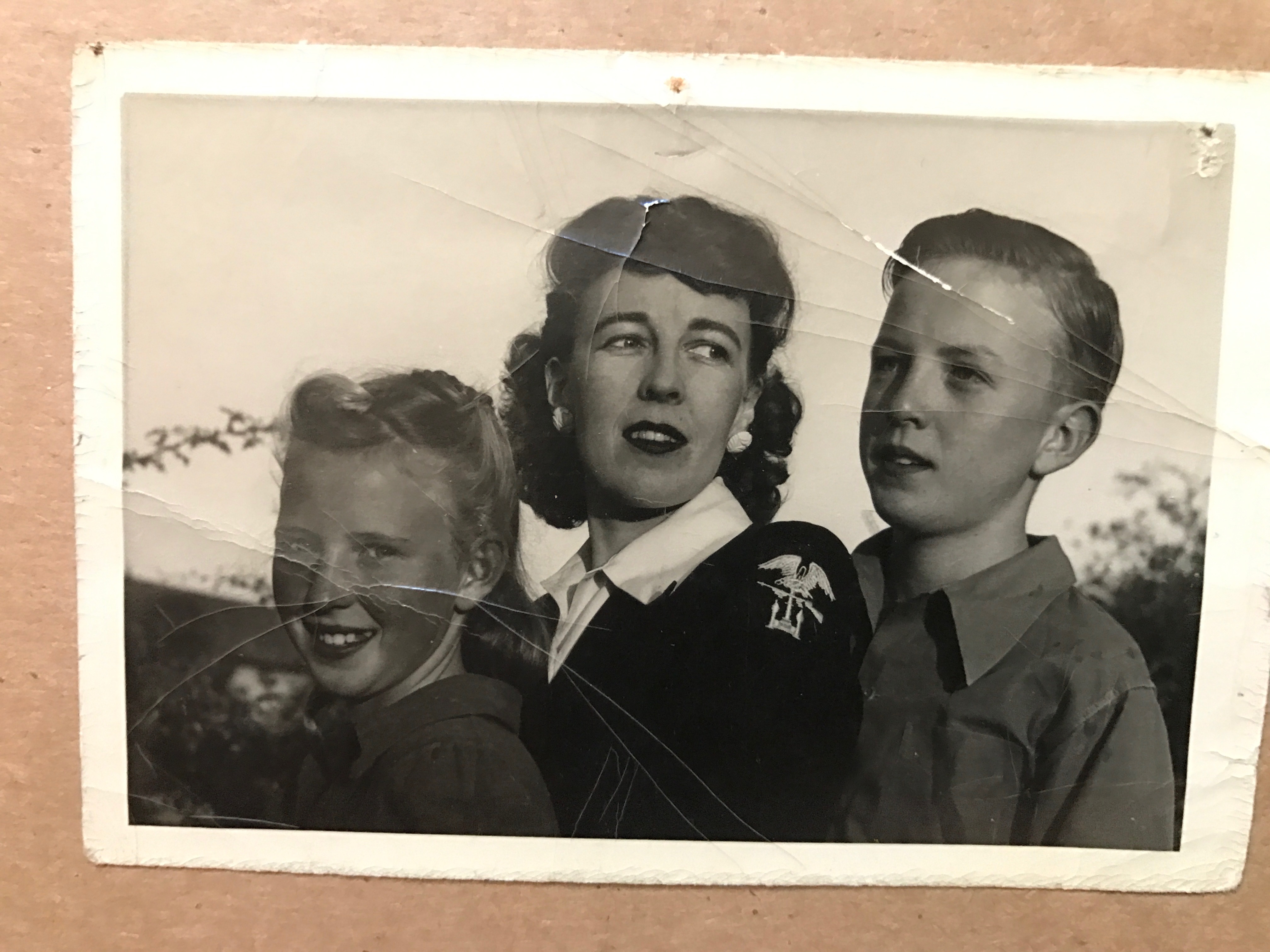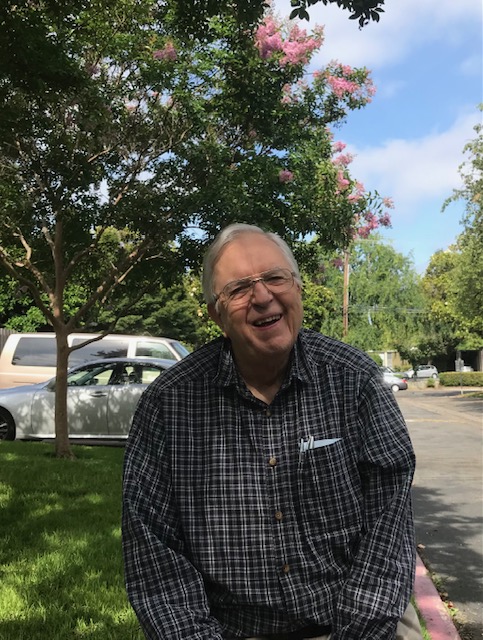
When I was ten years old living in Boise, Idaho with my mom and dad and younger sister Susanne, some radical changes came to our family from outside the system. First, my mother announced she was pregnant. Then her doctor found out she had high blood pressure and Bright’s Disease. She told my sister and me she might not live very long which was of course devastating to us. We instantly lapsed into denial. Our mother was only 35 years old. Reluctantly she elected to have a therapeutic abortion and a late term male fetus was removed by Caesarion section.( I could have had a baby brother). But as she was recovering our mother announced that our dad had been unfaithful and was carrying on a relationship with our second cousin (we called her “Google Eyes” because of her horn-rimmed glasses). Susanne and I were also in total denial about this— our dad would never do such a thing! Mother refused to get a divorce (shameful back then).


After I had graduated from the sixth grade (June 1944) we three boarded a Union Pacific steam train from Boise to Salt Lake. There we boarded a Pullman Sleeper train for Los Angeles.
That train ride was thrilling. I looked out the window at the moonlit desert salt pans, occasionally getting a glimpse of the mighty engine up front making 80 miles an hour.
 Arriving in Los Angeles at dawn we rode the Daylight to San Diego where we were met by my grandfather Art Wilkie and his wife Lily. Soon we were settled into a room granddad had added on to their tiny retirement house in Chula Vista. I lived there until 1954 when I moved to Palo Alto for grad work in Physics at Stanford...
Arriving in Los Angeles at dawn we rode the Daylight to San Diego where we were met by my grandfather Art Wilkie and his wife Lily. Soon we were settled into a room granddad had added on to their tiny retirement house in Chula Vista. I lived there until 1954 when I moved to Palo Alto for grad work in Physics at Stanford...
Mom found an excellent Jewish doctor in Chula Vista for herself (and for Sue and me!) Jacob Wenig MD did everything he could to extend Audrey’s life but kidney disease was incurable in those days.
 Yet mom found a job as a receptionist at the Naval Air Station North Island San Diego. There she met an enlisted man whom she soon fell in love with. I met John when he came by to say goodbye to us as he was leaving to return to his wife and kids on the East kings. Mom said he had remained faithful to his wife, but she said, “If only I had known what true love was until now.” I wanted John to be my real dad in the worst way but that parting was forever. I wanted mom to live long and prosper for another fifty years. That was not to be. She died at Mercy Hospital, San Diego, November 15, 1946. I was in denial that my mother was dying, but the family was gathered at our house.
Yet mom found a job as a receptionist at the Naval Air Station North Island San Diego. There she met an enlisted man whom she soon fell in love with. I met John when he came by to say goodbye to us as he was leaving to return to his wife and kids on the East kings. Mom said he had remained faithful to his wife, but she said, “If only I had known what true love was until now.” I wanted John to be my real dad in the worst way but that parting was forever. I wanted mom to live long and prosper for another fifty years. That was not to be. She died at Mercy Hospital, San Diego, November 15, 1946. I was in denial that my mother was dying, but the family was gathered at our house.
(My dad was there at the end having gotten leave from the Navy. He was drafted, would you believe, on account of the high drain of WW2 on the nation). The phone rang at 2 AM and we all gathered in the tiny kitchen. I cried like a baby but my dad did not. I thought I was the only one really experiencing loss.
For the next year I cried myself to sleep every night.
It was then I vowed to dedicate the rest of my life to living out my mother’s life and to be a son she could be proud of. Surely this was a boy’s rash vow! It would be years before I discovered which way was up!
Was anyone around me a secret follower of Jesus Christ who could have show me the Way, back then? Yes, but I wouldn’t be ready to listen for another 16 years.
For what it’s worth that’s my childhood rash vow working its way out until now.
“When I was a child, I spoke as a child, I understood as a child, I thought as a child; but when I became a man, I put away childish things.For now we see in a mirror, dimly, but then face to face.Now I know in part, but then I shall know just as I also am known.And now abide faith, hope, love, these three; but the greatest of these is love." (1 Corinthians 13;11-13) |
Postscript:
My wonderful dad was into hunting, fishing, coaching, and science. I emulated him by pursuing a career in science. My mother was into classical music, art, Shakespeare and the classics. My heritage today is from both sides of my family! This is in spite of flaws and failures in all of my forefathers and foremothers! My childhood vow is being redeemed and is no longer a curse. If Jesus can save me, surely making you whole is no big deal.
Ray Stedman once said he was curious about the Stedman Family Tree. After a liittle research he discovered that he have been descended from a long line of Scottish Horse Thieves.

Below are a few notes and links on vows we make in life, many (most?) of which we break. The most common broken vows are probably marriage vows. A second set are “promises to pay” which lead to insolvency, foreclosures and bankruptcy. But we betray one another every day when we make solemn promises to mend our ways when a week later we fall back into dysfunctional ways. Trouble is we are accountable to God and He keeps accurate books.
Jesus had penetrating words and a stern indictment of all of us when He said,Again you have heard that it was said to those of old, ‘You shall not swear falsely, but shall perform your oaths to the Lord.’ “But I say to you, do not swear at all: neither by heaven, for it is God’s throne; “nor by the earth, for it is His footstool; nor by Jerusalem, for it is the city of the great King. “Nor shall you swear by your head, because you cannot make one hair white or black. “But let your ‘Yes’ be ‘Yes,’ and your ‘No,’ ‘No.’ For whatever is more than these is from the evil one.” (Matthew 5:33-37)
From Ecclesiastes
by Ray Stedman...So even old age, even time, does not always teach us these lessons. It all remains yet, "vanity, emptiness, a striving after wind." In Chapter 5, a marvelous chapter, the Searcher answers these objections in a wonderful way. There are four things which he declares.
First:
Guard your steps when you go to the house of God; (Ecclesiastes 5:1a RSV)Learn to let God be God; that is the first thing he declares to us. The lessons of life will fall into place when you learn that. God is in charge of life, let him be in charge; take these lessons from his hands.
The place to learn that is in the house of God. When you go there, guard your steps, i.e., enter thoughtfully, expect to be taught something. In ancient Israel, of course, the house of God was the Temple in Jerusalem. There sacrifices were offered, and explanation was made to the people as to what they meant. There the law was read, and the wisdom of God about life was given to people; this marvelous Old Testament was unfolded, with its tremendous insights into the truth about life, about what humanity basically and fundamentally is. The Temple was the only place in the land where people could learn these things. In our day the house of God is no longer a building. We must be clear about that. You, the people, are the house of God. What the Searcher is saying is that when you gather together as the people of God, be expectant; there is something to be learned.
Secondly, he says, listen carefully:
...to draw near to listen is better than to offer the sacrifice of fools; for they do not know that they are doing evil. (Ecclesiastes 5:1b RSV)A fool is somebody who glibly utters naive, ingenuous and usually false things. What the Searcher clearly has in mind here is our tendency to complain and murmur about what has been handed us in life. When we gripe and grouse about our circumstances we are really complaining against God. We are complaining about the choice God has made in his wonderful plan for our life. We will never learn to enjoy anything that way, not even our pleasures, let alone our pain. So he says, listen carefully, for among the people of God the truth of God is being declared; the wisdom of God is being set forth. Just this morning a man said to me, "I have been going through a painful experience this past week. I learned to see myself and it horrified me. I saw things in myself which I despise in others." That is encouraging. There is a man who is learning truth about himself.
The Searcher continues, Verse 2:
Be not rash with your mouth, nor let your heart be hasty to utter a word before God, for God is in heaven, and you upon earth; therefore let your words be few. For a dream comes with much business, and a fool's voice with many words. (Ecclesiastes 5:2-3 RSV)Almost everybody takes the phrase, "God is in heaven." to mean that God is off somewhere, high above the universe, watching the affairs of men, while we insignificant pygmies struggle along down here. But that is not what this is saying at all. Heaven is not some distant place. In the Bible, heaven always means the invisible world of reality, what is going on that we cannot see but yet is really there. God is in that realm, and that is why he sees much more than we do.
As I look out on this congregation this morning I see your bodies. They reveal certain things -- some of you are interested, some of you are asleep. If I were to pray for you, however, there is no way I could understand the tremendous complexity and depth of struggle that many of you are going through. But God does. God not only sees you, he sees what is inside of you, what even you cannot see. He sees your heredity, your environment, your struggles. He sees every one of us that way. Remember that when you are dealing with God. When he speaks to you through his word, that word is so much more true than anything you can come up with as an explanation of life because God sees all of life, from beginning to end. He is in heaven and you upon earth, so for heaven's sake, don't start griping about what God has handed you. That is the Searcher's argument.
The saints have had to learn this lesson from time immemorial. It is reflected in a hymn by William Cowper,
God moves in a mysterious way"God is in heaven and you upon earth; therefore let your words be few," the Searcher says. "For a dream comes with much business." By this he means fantasies, and fantasizing produces much activity but accomplishes nothing. So also a fool with his many words of complaint accomplishes nothing.
His wonders to perform;
He plants his footsteps in the sea,
And rides upon the storm.
Deep in unfathomable mines
Of never ending skill,
He treasures up his bright designs,
And works his sovereign will.
You fearful saints, fresh courage take;
The clouds you so much dread,
are big with mercies, and shall break
In blessings on your head.
Secondly, he says, "Don't play games with God!" Verse 4:
When you vow a vow to God, do not delay paying it; for he has no pleasure in fools. Pay what you vow. (Ecclesiastes 5:4 RSV)God is a realist. He never plays games with us. He sees things the way they really are and he tells us the way they are. God expects us to carry out our word. It is dangerous to make superficial promises about what we are going to do if he will only do this or that. He hears our promises, and he takes us at our word. There is a penalty when we do not keep it. This ought to teach us to be careful about what we promise God. Do not do that, for he is not pleased with fools.
In fact, the Searcher goes on to say,
It is better that you should not vow than that you should vow and not pay. Let not your mouth lead you into sin, and do not say before the messenger [the priest, the pastor or the representative of God] it was a mistake; (Ecclesiastes 5:5-6a RSV)Do not say, "I didn't really mean that." How many have said this about their wedding vows. God takes you at your word.
...why should God be angry at your voice, and destroy the work of your hands? For when dreams increase, empty words grow many: but do you fear God? (Ecclesiastes 5:6b-7 RSV)You are dealing with the Author of life itself. He holds your existence in the palm of his hand. God is not cruel and heartless; he is loving but he is real, so do not play games with him. Be honest with God; that is all the Searcher is saying. So pay attention when you are hearing the words of God. Listen as he describes life to you. He is telling you so that you might find enjoyment in all that you do.
Thirdly, value government; it too is from God. Verse 8:
If you see in a province the poor oppressed and justice and right violently taken away, do not be amazed at the matter [do not be bitter over this]; for the high official is watched by a higher, and there are yet higher ones over them. But in all, a king is an advantage to a land with cultivated fields. (Ecclesiastes 5:8-9 RSV)The argument is very simple: do not be astonished and bitter. God has set up higher officials who may correct oppression when they become aware of it. But even if they do not, there is One yet higher. He is aware, and he knows what he is doing. Recognize that there is good in government. Someone has well said, "Even bad government is better than no government at all." We cannot live in anarchy. Even the worst kind of government is better than no government at all. Value that. It will help in dealing with the problems of life.
Then the Searcher takes a fourth circumstance. Most people feel that if they could only get rich they could handle the pressures and the problems of life. This section runs from Verses 10-17.
He who loves money will not be satisfied with money; nor he who loves wealth, with gain: this also is vanity. (Ecclesiastes 5:10 RSV)First, money will not satisfy you; money will not leave you feeling full and enjoying life. There is plenty of testimony to that today.
Secondly,
When goods increase, they increase who eat them; and what gain has their owner but to see them with his eyes? (Ecclesiastes 5:11 RSV)That is, you will soon discover that a crowd of parasites gather around you to spend your money for you; you get nothing out of them but expense.
He develops this even further:
A second disadvantage to having money is that you worry about how to take care of your property. You stay awake nights, worrying about how to keep what you have.Sweet is the sleep of a laborer, whether he eats little or much; but the surfeit of the rich will not let him sleep. (Ecclesiastes 5:12 RSV)
There is still a third disadvantage:
There is a grievous evil which I have seen under the sun: riches were kept by their owner to his hurt, and those riches were lost in a bad venture; and he is father of a son, but he has nothing in his hand. (Ecclesiastes 5:13-14 RSV)You can lose your riches too. They can disappear overnight. A turn of the wheel, a drop in the Dow Jones Averages and your fortune is gone.
Finally, riches will not survive death, but you will:
As he came from his mother's womb he shall go again, naked as he came, and shall take nothing for his toil, which he may carry away in his hand. This also is a grievous evil: Just as he came, so shall he go; and what gain has he that he toiled for the wind, and spent all his days in darkness and grief, in much vexation and sickness and resentment? (Ecclesiastes 5:15-17 RSV)ou can take absolutely nothing away with you. Life is empty and meaningless for so many people. They suffer from "Destination Sickness"; having arrived at where they always wanted to be, and having everything they always wanted to have, they do not want anything they've got.
Once again we come to the true answer in the closing words of the chapter:
Behold, what I have seen to be good and to be fitting is to eat and drink and find enjoyment in all the toil with which one toils under the sun the few days of his life which God has given him, for this is his lot. Every man also to whom God has given wealth and possessions and power to enjoy them, and to accept his lot and find enjoyment in his toil -- this is the gift of God. (Ecclesiastes 5:18-19 RSV)Enjoyment does not come from possessions, or from riches. Nor does it come from companionship, from popularity and fame, from the approval and the admiration of others. Enjoyment comes by knowing the Living God and taking everything from his hand with thanksgiving, whether it be pain or pleasure. That is the gift of God, and that is the lesson of this great book.
Notice how the chapter closes:
For he will not much remember the days of his life because God keeps him occupied with joy in his heart. (Ecclesiastes 5:20 RSV)Have you ever met people like that? They have lived a full life, but they never talk about the past. Some people live in the past.
William Randolph Hearst, who amassed one of the great fortunes of our time, ended his days amidst all the opulence and splendor of the castle which he built in Southern California, sitting in a basement, playing over and over again the movies of his paramour from Hollywood, in an effort to eke out a degree of enjoyment from the past.
When people discover the richness of life which God has provided they do not think of the past, or even talk about it. They do not talk about the future either because they are so richly involved with the savor of life right now.
How good it is to know the Living God, to know that he controls what comes into your life. He expects you to make choices; Scripture always encourages that. But rejoice in the wisdom of a Father's heart, and richly enjoy what is handed you day-by-day; that is the secret of life. Such a one "will not much remember the days of his life" because God will keep him occupied "with joy in his heart."
Why does God allow This?
Uncovering your Childhood Vows by Leo Craig
Hide and Seeker: Childhood Vows
Jephthah's Rash Vow: The Incomplete Victory, by Ray Stedman
Promises, Promises, Promises, by Ray Stedman

Then I saw a great white throne and Him who sat on it, from whose face the earth and the heaven fled away.
And there was found no place for them.
And I saw the dead, small and great, standing before God, and books were opened.
And another book was opened, which is the Book of Life.
And the dead were judged according to their works, by the things which were written in the books.
The sea gave up the dead who were in it, and Death and Hades delivered up the dead who were in them.
And they were judged, each one according to his works. T
hen Death and Hades were cast into the lake of fire. This is the second death.
And anyone not found written in the Book of Life was cast into the lake of fire.“
(Revelation 20:11-15)
![]()
February 5, 2021. July 8, 2022
Lambert's Main Library
Email is welcome: Lambert Dolphin
Archive for Newsletters
Library Annex (500+ new articles since 2018)
Help Thyself. No Charge


